Mapping Social Networks for Performance Evaluation of Irrigation Water Management in Dry Areas

Authors:
Collaboration between actors is an important determinant of water governance, particularly in developing countries suffering from lack of institutional and organizational performances for water management. The objective of this paper is to use the social network (SN) concept in bringing depth to the understanding of local irrigation governance in three irrigated schemes located in dry regions of southern Tunisia. Local stakeholders in the considered schemes interact around different water-related issues. These include authorizations for access to water, extension services for irrigated crops, training on the use of irrigation technologies, and finance and subsidies of irrigation water saving equipment. We considered each of these types of interactions as different tie and we mapped social networks around each of them. Foreach network, actors’ densities, frequencies, and weight were reported. The results were revealing that better performances of water management are observed in areas with high SN density and high centrality of water users’ associations. The relative "weights" of actors in the three considered areas were significantly different, indicating that the application of a standard decentralization process of irrigation water may result in different local organizational arrangements, depending on pat- terns of social interactions.
